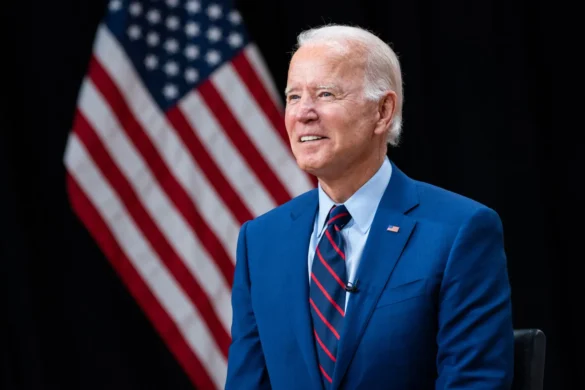The US government has formally issued an apology to Native Americans for the atrocities committed through the Indian boarding school system, a policy that spanned over 150 years. President Joe Biden delivered the historic apology from Arizona, acknowledging the harm caused by forcibly assimilating indigenous children into white American culture. This marks a significant moment in US history as the government publicly addresses the trauma inflicted on Native American communities.
The apology specifically refers to the government’s role in establishing and funding Indian boarding schools from 1819 through the 1970s. These schools forcibly removed children from their homes and families, stripping them of their native languages, cultural identities, and traditions. In many cases, children faced severe emotional and physical abuse, and some never returned home. The US government’s apology is part of an effort to address the longstanding pain and suffering endured by indigenous communities as a result of these policies.
Biden’s Historic Apology
President Biden’s apology, delivered at the tribally-controlled Gila Crossing Community School in Arizona, acknowledges the wrongs committed under the Indian boarding school policy. “I’m here to do something that should have been done a long time ago—make a formal apology to the Indian nations for the way we treated their children for so many years,” Biden stated before an audience of indigenous leaders and community members.
The Indian boarding school system was created as part of a federal policy aimed at assimilating Alaska Native, American Indian, and Native Hawaiian children into white American culture. These schools, which were often run by churches, systematically erased indigenous languages, traditions, and identities. Children were frequently subjected to abuse, including being beaten or starved for speaking their native languages. Many families were left devastated, as children were taken far from home, and in some cases, never returned.
The Legacy of Indian Boarding Schools
The Indian boarding school policy, which lasted from the early 19th century through the mid-20th century, had a profound impact on Native American communities. Over 523 government-funded schools operated across the United States, removing tens of thousands of children from their families. The policy left a lasting legacy of trauma, which has been passed down through generations of indigenous people.
In some of the most tragic cases, children died while attending the boarding schools. The whereabouts of many of these children remain unknown, adding to the pain experienced by Native American families. The US government’s apology recognizes these injustices and is seen as an important step toward healing the wounds inflicted by this dark chapter of American history.
The Biden Administration’s Response
Under the Biden administration, the US Department of the Interior launched the first-ever federal investigation into the Indian boarding school system. Interior Secretary Deb Haaland, the first Native American to serve in a presidential cabinet, led a “Road to Healing” tour in 2023 to listen to survivors’ stories and document their experiences. Haaland, who is of Laguna Pueblo descent, has been a key figure in pushing for the US government to confront its history with indigenous peoples.
The Department of Interior also created an oral history project to preserve the testimonies of survivors and their families, ensuring that their experiences are not forgotten. This initiative aims to shed light on the full scope of the boarding school system’s impact, and to contribute to the ongoing healing process for Native American communities.
Comparisons to Canada’s Reconciliation Efforts
Biden’s apology draws parallels to a similar policy in Canada, where the government forcibly sent around 150,000 indigenous children to residential schools. In 2008, Canadian Prime Minister Stephen Harper issued a formal apology to First Nations, Inuit, and Métis peoples for the harms caused by these schools. Canada also established a Truth and Reconciliation Commission to document the abuse and deaths that occurred within its residential school system.
While Biden’s apology marks the first time a US president has formally addressed the legacy of the Indian boarding schools, it is seen as a crucial step toward accountability and justice. Indigenous advocates hope the US government will follow Canada’s lead by implementing further measures, such as truth and reconciliation efforts, to address the lasting damage inflicted on Native American communities.
Looking Forward
The US government’s apology to Native Americans for the boarding schools represents a critical acknowledgment of the injustices faced by indigenous children and their families. For many, this apology is long overdue, as Native American communities continue to cope with the generational trauma caused by these schools. President Biden’s speech, along with the initiatives launched by the Department of the Interior, signals a commitment to recognizing and addressing the historical wrongs inflicted on indigenous peoples.
As the United States confronts this painful part of its history, the apology is viewed as a significant, albeit initial, step toward healing. The broader hope is that this public recognition will pave the way for more comprehensive efforts to support indigenous communities, including increased cultural preservation, education, and reparative justice programs.
This apology sets a new precedent for the US government in addressing historical grievances and moving toward a future where Native American voices are not only heard but respected.
Stay connected to know more on arcnews.online for global news like US Government Issues Apology To Native Americans For Boarding Schools. For videos updates visit our YouTube. Do subscribe to Arcnews to get latest updates directly in your mail box.
Have A Great Day.


